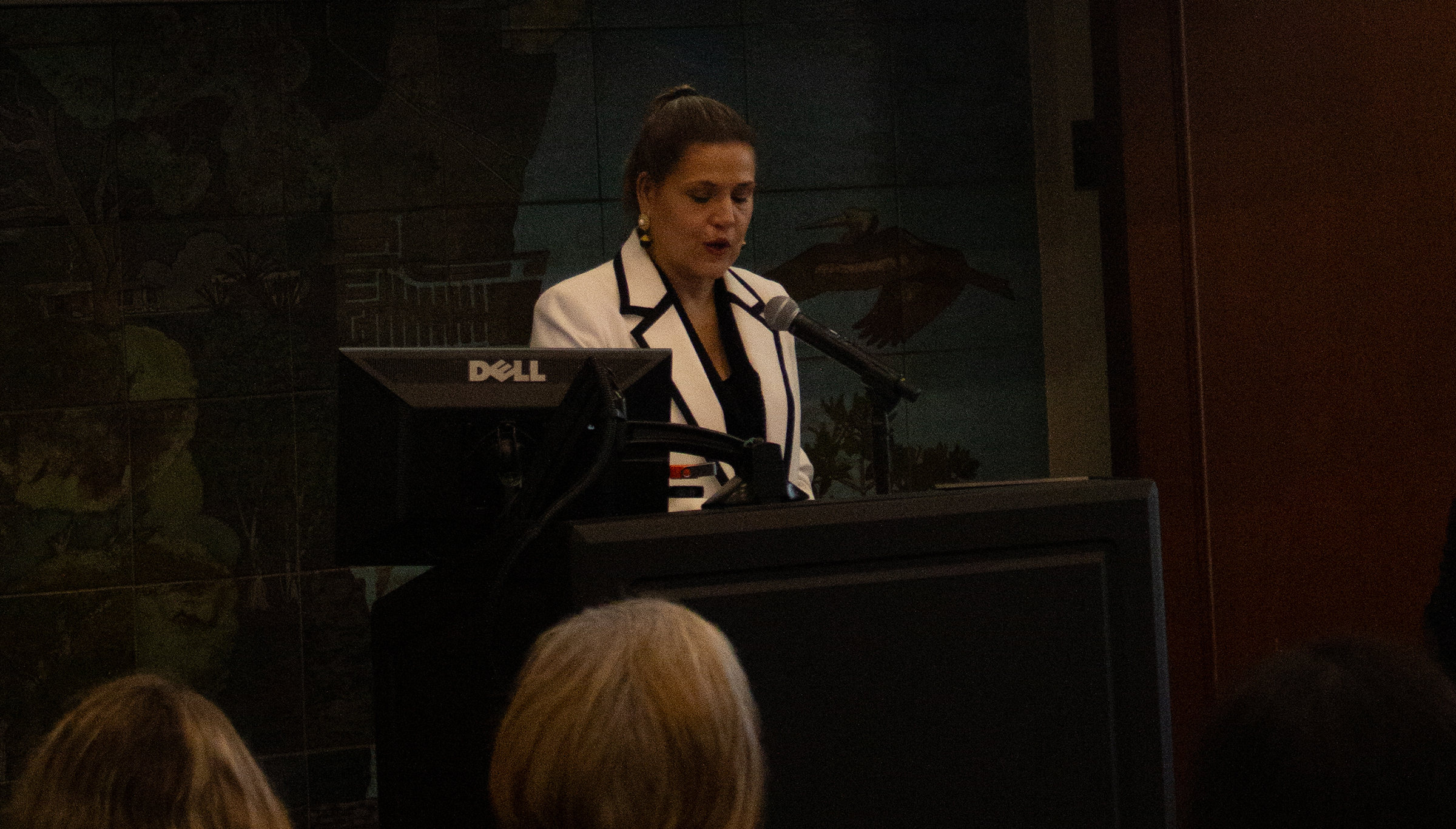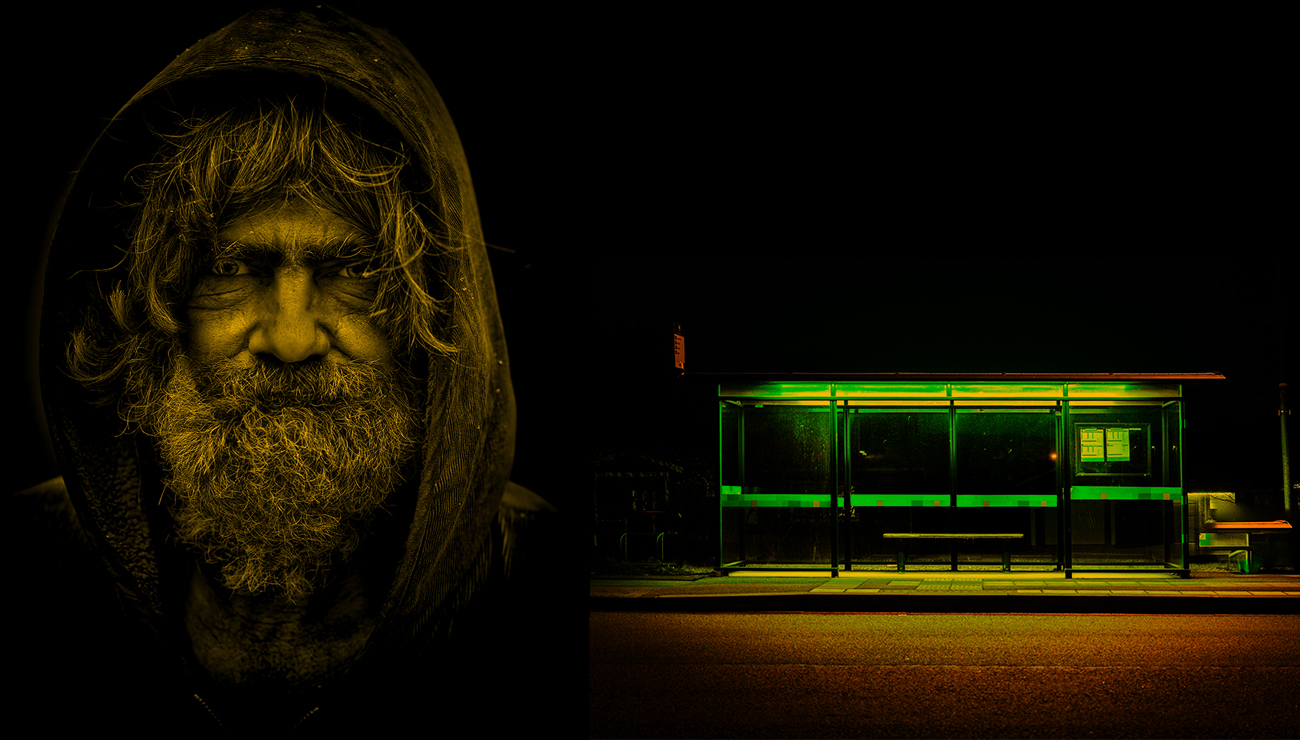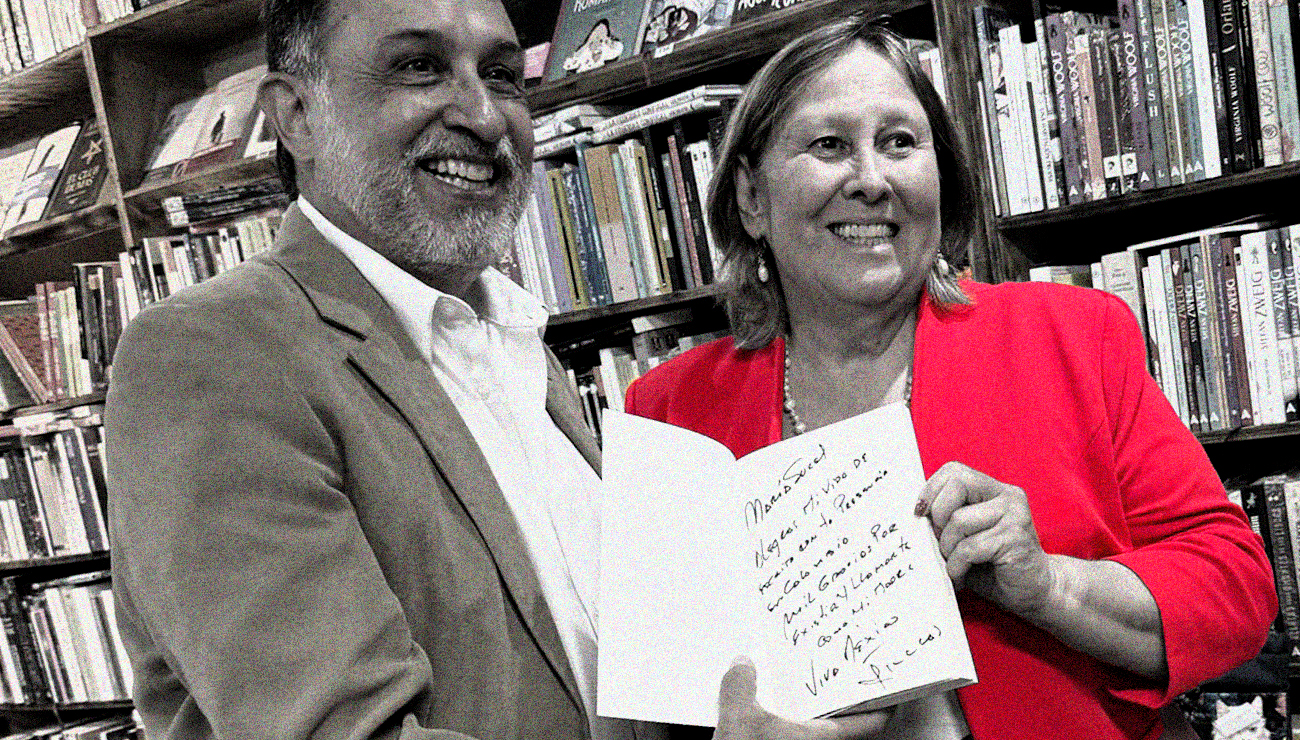
Annette Taddeo illuminates the novel’s fiction with a real testimony on power abuse against workers
Author: ©2024 William Castano-Bedoya
Our system was intentionally designed to fail in order to artificially boost the image of our state’s leadership. Even Governor Ron DeSantis made alarming statements about our state’s unemployment system. He suggested that the CONNECT system, designed under Governor Rick Scott, was intentionally crafted to deter people from applying for and receiving benefits. This assertion is deeply troubling and warrants a thorough examination of the system’s design and its implications for our residents. This revelation underscores the gravity of our discussion today and emphasizes the urgent need for reform in how we support our citizens during times of economic hardship.
During the time I was writing the novel “We the Other People: The Beggars of the Mercury Lights,” I reflected on how real-life experiences inspire the fiction that writers create. I have always believed that our own experiences shape what we write. In the paradoxical present of Steve Newman, the protagonist of this novel, who struggles to overcome his depression while driving a passenger transport vehicle for years, the pandemic struck. Very similar to real life, for endless months, workers were denied their unemployment insurance checks, plunging them into a nightmare. Steve was trapped in a frantic battle against fate amidst the specters of death and hunger, as his needs grew in pace with human tragedy.
During those days, Steve desperately sought help in the novel, but governmental inefficiency and negligence, exacerbated by the politicization of the pandemic, prevented any timely solutions. However, as an author, I could observe that in real life there were people like Senator Annette Taddeo, representing Florida’s 40th Senate District, and Senator José Javier Martínez, from the 37th District, who, against all odds due to excessive conservative power under the ‘Tycoon’, stood out for pressing for solutions. Although the politicization of the pandemic and the power of the ‘Tycoon’ hindered their efforts.
Upon finishing my novel, I felt the need to bring these testimonies to reality to validate the fictions that portray cruel chapters for Steve Newman and his family. When I decided to present my novel at the Coral Gables Branch Library on June 26th, I approached Senator Taddeo with a simple request for testimony, which she accepted without hesitation. I deeply appreciate her participation and that of the other panelists, who made this presentation an unprecedented event and an important starting point for future discussions. Here are Senator Taddeo’s words:
“Good evening, everyone. Today, I want to address a critical issue that has deeply impacted our state during the COVID-19 pandemic: Florida’s unemployment crisis. The pandemic resulted in unprecedented job losses across our communities, leaving countless Floridians in desperate need of unemployment assistance.
When author William Castano-Bedoya approached me to provide testimony regarding the debacle of Florida’s unemployment system, I immediately agreed. Our state’s response to this crisis was completely inadequate and demanded urgent attention. William sought my testimony to highlight the realities faced by workers, which are often overlooked and fictionalized in discussions about unemployment, and I am grateful to be here to highlight this undercovered issue.
Our system was intentionally designed to fail in order to artificially boost the image of our state’s leadership.
Even Governor Ron DeSantis made alarming statements about our state’s unemployment system. He suggested that the CONNECT system, designed under Governor Rick Scott, was intentionally crafted to deter people from applying for and receiving benefits. This assertion is deeply troubling and warrants a thorough examination of the system’s design and its implications for our residents.
This revelation underscores the gravity of our discussion today and emphasizes the urgent need for reform in how we support our citizens during times of economic hardship.
In 2011, the Florida Legislature gutted the system, including benefits, in order to keep premiums paid by big businesses the lowest in the nation. The CONNECT system, launched in 2013 with a hefty price tag of $77.9 million, has been plagued with issues from the start. For example, Florida’s recipient rate for unemployment benefits is one of the lowest in the country, at an average of less than 10%. This is the percentage of unemployed Floridians receiving unemployment; meaning that 90% of unemployed Floridians either don’t qualify for unemployment or have already exhausted their benefits. This is all by design! The system that was supposed to streamline the process of applying for unemployment benefits frequently crashed and proved difficult for applicants to navigate. These technical shortcomings have exacerbated the hardships faced by our constituents during their time of need.
Florida’s unemployment system is one of the weakest in the nation. Our unemployment insurance system was exposed to be incredibly flawed from top to bottom.
Leaders on all sides of the aisle called Florida’s unemployment system “designed to fail”, “jalopy” and a “s*#^ sandwich”. Despite Florida’s high costs of living, Floridians without jobs were only able to receive up to $275 a week. If you translate that into an hourly wage, that’s only $6.88 an hour for full-time work—far below Florida’s minimum wage of $8.56 an hour during the pandemic. Moreover, those benefits only last for up to twelve weeks, which is painfully short compared to the average of 42 weeks for other states.
Throughout the pandemic, I spoke with thousands of Floridians fighting to stay afloat even as they lost their jobs and loved ones to this virus. Floridians were maxing out their credit cards, throwing themselves into debt and harming their credit scores. In our state, and definitely here in South Florida, $275 a week is simply not enough to feed a family, let alone keep a roof over your heads. The pandemic and resulting economic disaster put hundreds of thousands of families out of work, due to no fault of their own.
I have heard firsthand accounts from many constituents who have struggled to access the benefits they rightfully deserve. Individuals like Jennifer Riley from Ormond Beach, who waited weeks and endured countless frustrations just to receive payments. Their stories underscore the human toll of bureaucratic failures and highlight the urgent need for reform.
We must remember that hardworking Floridians power our economy. Keeping money in people’s pockets so they can get their groceries and pay their bills will keep up spending in Florida and help rebuild our economy. It’s crucial that our leaders remember the critical role played by unemployment and provide a major expansion of unemployment benefits to meet Floridians’ needs
As a representative of the people. It is unacceptable that our state’s response to an economic crisis has been marred by inefficiency and indifference. We must hold accountable those responsible for the design and implementation of this flawed system.
The political dynamics surrounding this issue are complex. There exists a rivalry between Governor DeSantis and Senator Scott, which may influence perceptions of accountability and responsibility. However, our focus must remain on advocating for the best interests of Floridians and ensuring that our government systems work effectively for all.
In conclusion, it is clear that Florida’s unemployment system failed many of our residents when they needed it most. It’s obvious that we need to rebuild the Florida Department of Economic Opportunity’s system for processing claims, but we can’t lose sight of the fact that unemployment insurance protections here are pathetic compared to the rest of the nation and especially when you consider the cost of living in our state.
As a small business owner myself, we pay this insurance so that when disaster strikes, if employees lose their job due to no fault of their own, they can feed themselves and their children, and get back on their feet. After all, this is an insurance policy like any other, not a government handout.
I encourage you to read the novel ‘We the Other People: The Beggars of the Mercury Lights’ and reflect on its themes. The author, through the main character Steve Newman, presents two manifestos that he leaves on his daughter Emmie’s bed as an epilogue to the novel. This epilogue contains two parts: Part 1: The creation of ‘The Life Amendment: The Right to Live Without Fear’ and Part 2: Considerations Regarding Workers’ Rights.
By engaging with these ideas, we can better understand the need for comprehensive reform and advocate for a more just and supportive system for all Floridians.
Annette Taddeo is a dedicated public servant and successful businesswoman. In 2017, Taddeo made history as the first Latina Democrat in the Florida Senate, earning respect for her bipartisan efforts and advocacy for Miami-Dade residents. She played a crucial role during the pandemic, ensuring residents received unemployment benefits. Now, she is running for Miami-Dade Clerk of Court and Comptroller, focusing on transparency, accountability, and protecting taxpayers’ dollars. Annette’s extensive experience in public service and her deep understanding of the U.S. Constitution will undoubtedly provide valuable insights for our panel. Her unique perspective, combining her political career and business acumen, will add depth to the discussion and enhance the presentation of this novel. It will be fascinating to hear her viewpoints.
Finished reading and want more? Your next favorite story is just a click away.
Explore my books!
A Planetary Choreography: Each Tragedy Serves as a Screen to Hide Another
William Castaño
William Castaño-Bedoya is an American writer based in Coral Gables, Florida. His literary fiction explores the ethical, psychological, and emotional structures that shape human relationships, focusing on love, vulnerability, and the tensions between power and compassion. His narrative voice is marked by interiority, silence, and moral inquiry, privileging emotional intelligence over spectacle. After a long career in marketing and creative leadership, he turned fully to literature, bringing a strategic understanding of contemporary human experience to his work. He is the author of several novels, including "The Intriguing Stillness of the Tides", "We the Other People", "Ludovico", "Flowers for Maria Sucel", "The Galpon", and "We’ll Meet in Stockholm".



